The top 25 books for web designers and developers
As Christmas is just over a month away, Craig Grannell quizzes the web industry’s finest about the essential books you should be giving to that special web designer or developer in your life or devour yourself this holiday season
It almost seems counter-intuitive for web designers and developers, who work daily with the internet, to read a list of bound dead-tree recommendations. But carefully authored tomes provide advice and insight in a manner that few single-shot website articles can compete with. And, as technology marches on, publishers are embracing ebooks and the web, while small publishers increasingly provide focussed material on important, cutting-edge areas of web design and development.
We asked leading designers and developers to tell us about their favourite books. The resulting list ranges from technical insight through to inspirational texts. The one thing they all have in common: the potential to help you improve your work.
We lead with two books that almost everyone was clamouring to recommend — Adaptive Web Design and Responsive Web Design — before continuing with the other 23 titles.
1. Adaptive Web Design
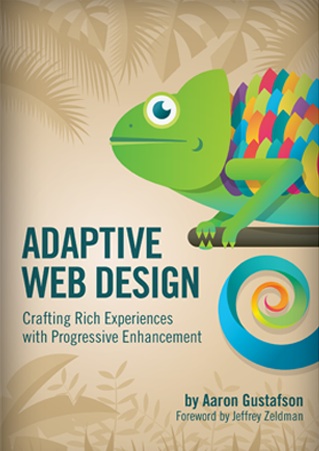
By Aaron Gustafson
$22 (paperback edition)
easy-readers.net
£6.45 (Kindle edition)
Buy now
With web designers having to cater for an increasingly diverse range of browsers and platforms, while also keen to remain at the cutting-edge, progressive enhancement is an essential concept to understand. Gustafson’s book provides you with this knowledge, through the history, mechanisms and practical application of progressive enhancement.
Several of those in the industry were quick to praise Gustafson’s work…
Jeffrey Zeldman, Happy Cog founder: “Coined by Steven Champeon of The Web Standards Project in the early 2000s, ‘progressive enhancement’ is the key idea behind standards-based web design. Both a method and a philosophy, it yields experiences that are accessible to all. Through mastery of progressive enhancement, we stop designing for browsers and start designing for people. No one has done a better, clearer, or more thorough job of illuminating progressive enhancement in all its richness than Aaron Gustafson… nor is anyone likely to.”
Developer Stephanie Sullivan Rewis: “This is a well-written book on methods and techniques to progressively enhance your web pages and keep them accessible. Aaron has provided lots of great examples.”
Author and speaker Jonathan Snook: “Aaron Gustafson’s book is thorough and covers just about every topic I could think of when it comes to responsible web design.”
2. Responsive Web Design

By Ethan Marcotte
$18/$9 (paperback/ebook)
Buy now
Like Adaptive Web Design, Marcotte’s book is keen to assist you in designing for today’s landscape, rather than rooting you in the past. With modern designers having to cater for mobile browsers, tablets, netbooks and also massive widescreen displays, the concept of design that anticipates and responds to your users’ needs is key. Responsive Web Design details the techniques and principles behind such design, including fluid grids, flexible images and media queries.
Again, it was a popular book among those we asked for recommendations:
Andy Budd, Clearleft managing director: “Just like web standards, responsive design isn’t something you should sit on the fence about, until being asked by a client. Instead, good designers and developers should be thinking responsively about every new project that comes their way. So if you haven’t jumped on the responsive-design freight train yet, do so now, with this book to guide you, before you get left behind.”
Stephanie Sullivan Rewis: “This is an excellent explanation of how to create sites that react to the user’s needs — and Ethan makes you chuckle while you learn.”
Web designer, author of Hardboiled Web Design, and speaker Andy Clarke: “Ethan’s giving fluid grids, fluid assets and CSS3 media queries a collective name, ‘Responsive Web Design’, has changed the way millions of people now see web pages.”
Author, Easy! Designs founder and WaSP group manager Aaron Gustafson: “My book, Adaptive Web Design, and Ethan Marcotte’s Responsive Web Design make an excellent pairing if you’re excited by mobile and are looking to craft truly adaptive web experiences.”
Web and UI designer Sarah Parmenter: “This is a book I reference constantly. Ethan makes light of a tough skill-set and entertains throughout.”
And here's the rest in alphabetical order:
3. CSS3 for Web Designers
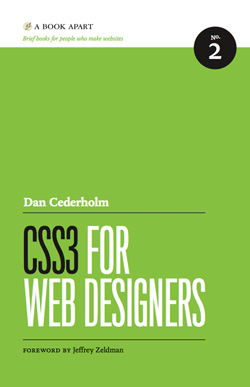
By Dan Cederholm
$18/$9 (paperback/ebook)
Buy now
Get the Creative Bloq Newsletter
Daily design news, reviews, how-tos and more, as picked by the editors.
Cederholm’s book aims to show how CSS3 is a “universe of creative possibilities”, providing insight into web fonts, advanced selectors and the many visual enhancements the technology can bring to web pages.
Eric Meyer, An Event Apart partner and co-founder, says: “With Dan you know you’re getting great visual design with a fun theme, wrapped around great technical information. This book delivers big time.” Meyer also recommends Jeremy Keith’s HTML5 for Web Designers as a companion volume, saying it enables you to “get up to speed with HTML5 in no time”.
4. Designing for the Digital Age
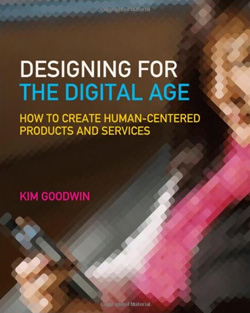
By Kim Goodwin
£40.38
Buy now
Not so much a web-design tome as a handbook for dealing with an entire industry, Designing for the Digital Age explores how to succeed through a multi-disciplinary approach. Freelance user experience consultant Leisa Reichelt considers it an essential read: “It’s not exactly ‘holiday’ as in ‘take to the beach’ reading, but if you’ve got some time off at home, it’s worth getting stuck into this design bible.”
5. DOM Scripting
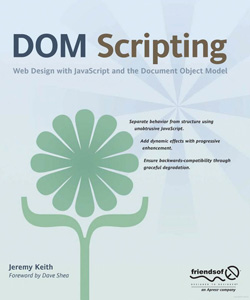
By Jeremy Keith
£24.69
Buy now
It’s increasingly common for websites to be rich in functionality provided by JavaScript. Keith’s book is intended to offer designers — rather than programmers — a guiding hand, showing them how to add stylish, usable enhancements to websites. Snook told us: “Jeremy Keith’s book has been out for a while now but I still believe that it provides a great foundation for anybody wanting to get into JavaScript development.”
6. Don’t Make Me Think!
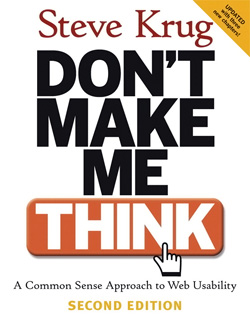
By Steve Krug
£14.89
Buy now
Krug’s tight, focussed book, subtitled ‘A common-sense approach to web usability’, remains as relevant today as when it first appeared, back in 2000. “Anyone who designs, codes, writes, owns, or directs websites should read and memorise this book,” argues Zeldman. “Whereas earlier usability books are scolding, parental, and anti-creative in tone, Steve makes the case for web usability compelling, friendly, and fun. I naively saw usability as the enemy of design until I read this book. It will work equal wonders for the marketers, developers, project managers, and content folks on your team… or for anyone who wants their website to delight its users.”
7. Getting Things Done
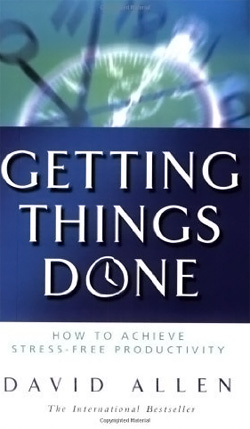
By David Allen
£6.50
Buy now
“One of the greatest problems faced by web design freelancers is stress. Running your own business and dealing with demanding clients leaves many freelancers lying in bed worrying and feeling completely overwhelmed,” thinks Paul Boag, co-founder of Headscape.
“Allen’s book proposes a way of organising one’s life to strike the balance between work and home. Although not for everybody, it certainly made an enormous difference for me, enabling me to feel in control of my ever-growing workload.”
8. Good Strategy, Bad Strategy
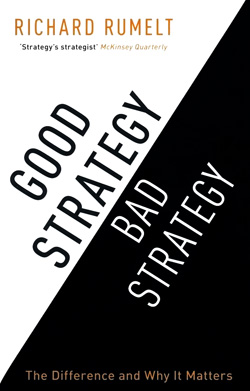
By Richard Rumelt
£7.01
Buy now
Rumelt’s book on management and strategy aims to differentiate itself from its rivals by not stretching an essay-like argument to hundreds of pages. Instead, says the author, it “presents views on a range of issues that are fundamental, but which have not been given much daylight”. This gelled with Reichelt: “It’s not exactly a web book, but I wish more web-industry people would read it so that we could spend more time making better things”.
9. Handcrafted CSS: More Bulletproof Web Design
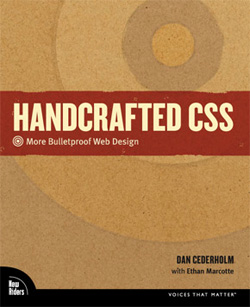
By Dan Cederholm and Ethan Marcotte
£17.10
Buy now
“If my own Designing With Web Standards was catnip to web designers, Handcrafted CSS is heroin,” jokes Zeldman. “Master sophisticated CSS layout methods powered by a philosophy of ‘progressive enrichment’. Create fluid designs that support today’s plethora of connected devices, and learn techniques that create a living, textural look and feel without killing your user’s bandwidth. Dare to innovate fearlessly and gain tips on persuading your clients to accept your innovations!”
10. JavaScript Enlightenment
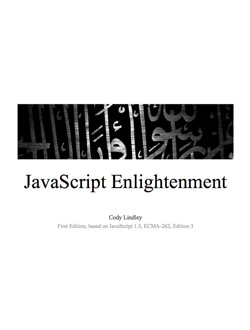
By Cody Lindley
$15 (PDF edition)
Buy now
On his website, Lindley says a lot about what his book is not: a complete reference; targeted at those new to programming and JavaScript; a cookbook of recipes. But what he says it is makes it a must-buy: a book that might transform you from a JavaScript library user into a JavaScript developer. Gustafson is a huge fan: “Most of us old-timers learned JavaScript by reading other people’s code and through blind experimentation, so we missed out on a lot of the fundamentals. In this book, Cody does an amazing job walking through the ECMA spec, detailing the intricacies of the JavaScript language. It made me love JavaScript even more than I already did.”
11. Mobile First
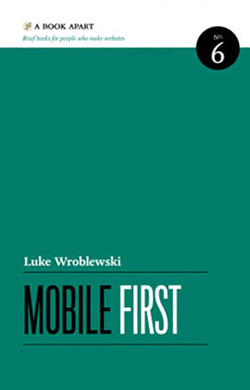
By Luke Wroblewski
$18/$9 (paperback/ebook)
Buy now
A strategic guide to mobile web design, which asks and answers why you should go mobile first, and how to achieve such goals. “Read in tandem with Responsive Web Design and you’ll know the shape of web design for the next five years,” believes Clarke.
Gustafson agrees: “When you want solid research and statistics on any web-related topic, Luke is your guy. His recent treatise on mobile is packed with incredibly valuable — and sometimes surprising — information that will help you better understand the mobile landscape and better sell its promise to your clients.”
12. Nudge: Improving Decisions About Health, Wealth and Happiness
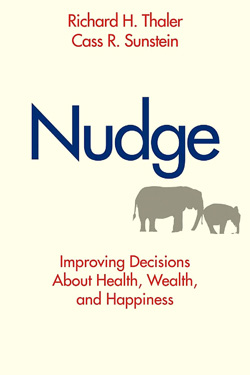
By Richard H Thaler and Cass R Sunstein
£13.52
Buy now
“Nudge is not strictly a web design book. However, I believe it should be essential reading for any web designer,” says Boag: “The premise of the book is that psychology can be used to ‘nudge’ people into making certain choices. While the book focuses on how this could be used to encourage things like more organ donation or saving for a pension, the lessons learnt can also be applied to designing a website.”
13. Rocket Surgery Made Easy
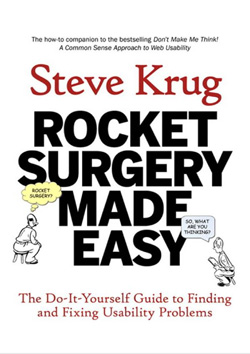
By Steve Krug
£15.41
Buy now
Although Krug is better known for Don’t Make Me Think (listed earlier), Boag considers Rocket Surgery Made Easy more useful for the majority of web designers: “Where the original book focused on the importance of usability testing, the second one talks about the practicalities of setting up regular test sessions. Most of us are already aware of the importance of usability testing and yet find it hard to make it happen. This book will show you how.”
14. Scalable and Modular Architecture for CSS
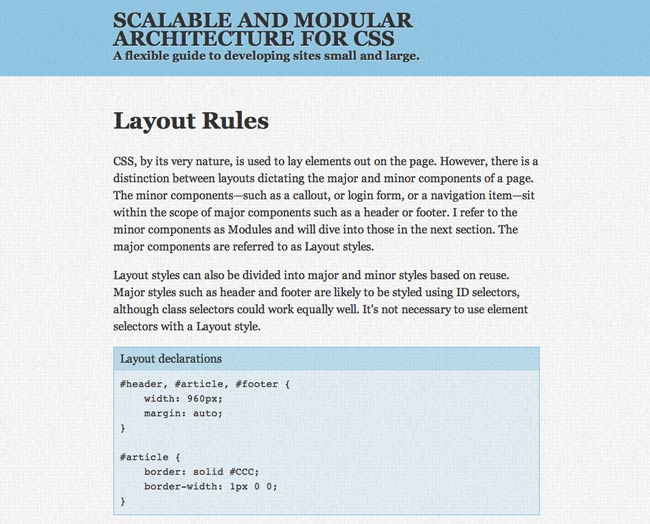
By Jonathan Snook
Free, online only
Get it now
In this website-cum-book, Snook outlines the methodology behind SMACSS (pronounced ‘smacks’), a means to examine your design process and fit rigid frameworks into a flexible thought process, thereby resulting in a consistent approach to site development when using CSS. “Jon has created a free, organic, online book with discussion, and it has great thoughts on architecting maintainable CSS for larger sites,” believes Rewis.
15. Seductive Interaction Design
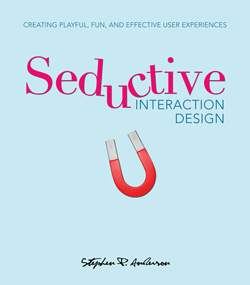
By Stephen P Anderson
£12.46
Buy now
Most designers at some point will have crafted something amazing and beautiful, but found that no-one cares. This book delves into the reasoning behind why people stick around, with an approach to designing sites and interactions based on the stages of seduction. “I love this book because it explains how to design websites to help invoke behaviour, with lots of emphasis on the psychology behind them as well,” says Parmenter.
16. Steve Jobs
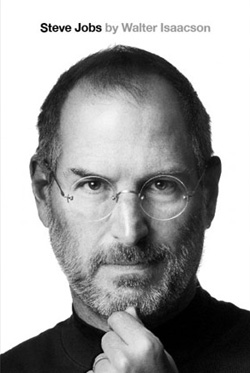
By Walter Isaacson
£11.97
Buy now
Steve Jobs was a private man, and so while many authors have delved inside his thought process, they’ve done so via assumption, guesswork and through third-parties. Isaacson’s book is different, drawn from three years of exclusive interviews with the Apple founder.
Clarke recommends it because “as web professionals, we need to remember to keep doing the work we love and never settle”.
17. Stunning CSS3
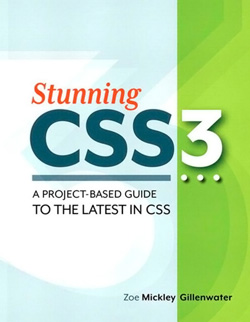
By Zoe Gillenwater
£16.94
Buy now
Far too many CSS books are little more than elaborate reference guides, but Gillenwater takes a different approach, helping you learn the power of CSS3 through practical, eye-catching examples. “I don’t think this book has gotten the promotion and attention it deserves,” says Rewis. “It is sincerely one of the most practical, informative and lovely CSS3 books out there, due to Zoe using a project-based approach throughout to illustrate the concepts.”
18. The Designful Company
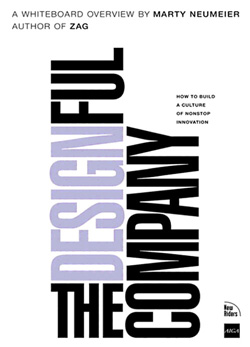
By Marty Neumeier
£13.59
Buy now
Another alternative and highly useful take on management, The Designful Company argues that while most managers rely on a two-step process to make decisions — ‘knowing’ and ‘doing’ — today’s innovation-driven marketplace requires a middle step, ‘making’, where “assumptions are questioned, futures are imagined and prototypes are tested”.
According to Budd, it’s a book folks at Clearleft constantly refer to: “And combined with his other books, Zag and The Brand Gap, it provides plenty of quotes and animation when having tough design conversations with clients.”
19. The Elements of Content Strategy
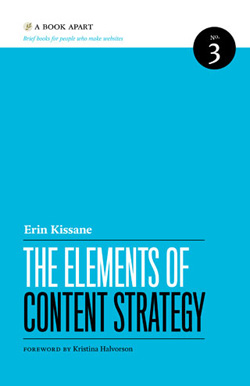
By Erin Kissane
$18/$9 (paperback/ebook)
Buy now
If you’re wondering where the idea of ‘content strategy’ arrived from, what it means and why it matters, you should begrabbing yourself a copy of Kissane’s book right now. “I thoroughly enjoyed reading it,” enthuses Snook. “And its succinctness should not be mistaken for lack of content — this is a dense read that’s chock full of great content, as one might expect from a book on content strategy!”
20. The Happiness Project
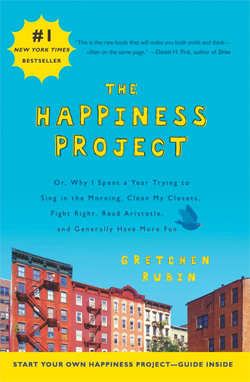
By Gretchen Rubin
£5.49
Buy now
Are you happy? Rubin one rainy afternoon realised she could be happier and embarked on her project, setting resolutions and figuring out what worked for her. The result is a thoughtful, practical and humorous story that could inspire you to your own paths to happiness. Parmenter elaborates on why it’s an important inclusion in our list: “It reminded me that there’s more to life than sitting in front of a Mac. Work/life balance is incredibly important in what we do, and this book can be read as a quick pick-me-up at any time.”
21. The Thank You Economy
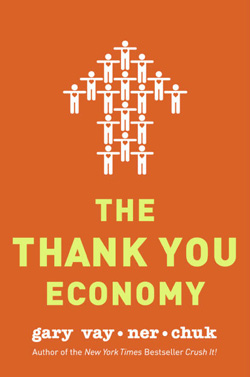
By Gary Vaynerchuk
£8.50
Buy now
“While not expressly a web design/development book, Gary surfaces a lot of important ideas with respect to customer service and ‘user experience’ in a more general sense,” says Gustafson on Vaynerchuk’s dissection of how the modern world has impacted on businesses and how they should behave. “I firmly believe every keystroke we make as designers and developers affects the user experience, and Gary’s book encourages us to take the complete customer experience into account with our work.”
22. The Victorian Internet
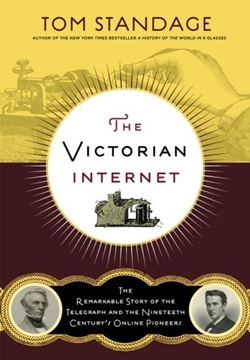
By Tom Standage
£9.97
Buy now
According to Meyer, this book is a “compact, fascinating examination of how the internet parallels the telegraph system very closely, and how the world was even more technologically disrupted and future-shocked by the telegraph than we could ever aspire to be”. Standage himself is proud of the book’s longevity, noting on his website that he got to “make fun of the internet, by showing that even such a quintessentially modern technology actually has roots going back a long way — in this case, to a bunch of electrified monks in 1746”.
23. Weaving the Web
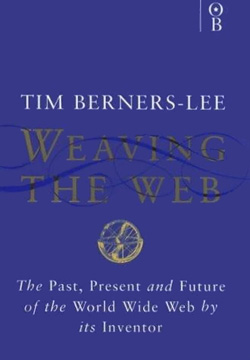
By Tim Berners-Lee
From £1.50 second-hand
Buy now
This book is an account of how the web came to be, direct from the source. Berners-Lee crafts an engaging story, also detailing the creation of the World Wide Web Consortium. The book is long out of print, but readily available second-hand.
Open web evangelist, designer and author Molly Holzschlag says: “This is a key work by the inventor of the World Wide Web, and a core, essential read for anyone working in the industry.”
24. Web Form Design
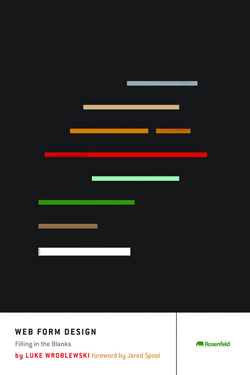
By Luke Wroblewski
£23.75
Buy now
Web forms are commonplace, to say the least. They also happen to make or break the most crucial online interactions – checkout, registration, and tasks requiring data entry – rightly argues this book’s blurb. But the fact remains that lots of online forms are dreadful, hampering usability.
“Bad web forms hurt us all. Luke shows why and how to fix them,” says Meyer on why you should buy this book.
25. Where Good Ideas Come From
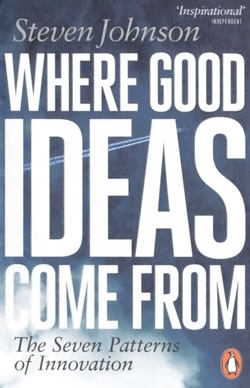
By Steven Johnson
£5.99
Buy now
“This book is a must-read for anybody in the creative industry,” believes Budd. Johnson examines how new ideas come into existence and outlines the environments required for innovation to happen. If nothing else, this is an excellent book to show your boss if they ask why you’ve been spending so much time chatting with friends in trendy coffee shops!”
So that’s our top 25 books, which should give you plenty of reading during dark winter evenings. Thanks to all our contributors: Paul Boag, Andy Budd, Andy Clarke, Aaron Gustafson, Molly Holzschlag, Eric Meyer, Sarah Parmenter, Leisa Reichelt, Stephanie Sullivan Rewis, Jonathan Snook, and Jeffrey Zeldman.
If there are any books you love and think should be recommended to all, let us know in the comments.

Thank you for reading 5 articles this month* Join now for unlimited access
Enjoy your first month for just £1 / $1 / €1
*Read 5 free articles per month without a subscription

Join now for unlimited access
Try first month for just £1 / $1 / €1
The Creative Bloq team is made up of a group of design fans, and has changed and evolved since Creative Bloq began back in 2012. The current website team consists of eight full-time members of staff: Editor Georgia Coggan, Deputy Editor Rosie Hilder, Ecommerce Editor Beren Neale, Senior News Editor Daniel Piper, Editor, Digital Art and 3D Ian Dean, Tech Reviews Editor Erlingur Einarsson, Ecommerce Writer Beth Nicholls and Staff Writer Natalie Fear, as well as a roster of freelancers from around the world. The ImagineFX magazine team also pitch in, ensuring that content from leading digital art publication ImagineFX is represented on Creative Bloq.
